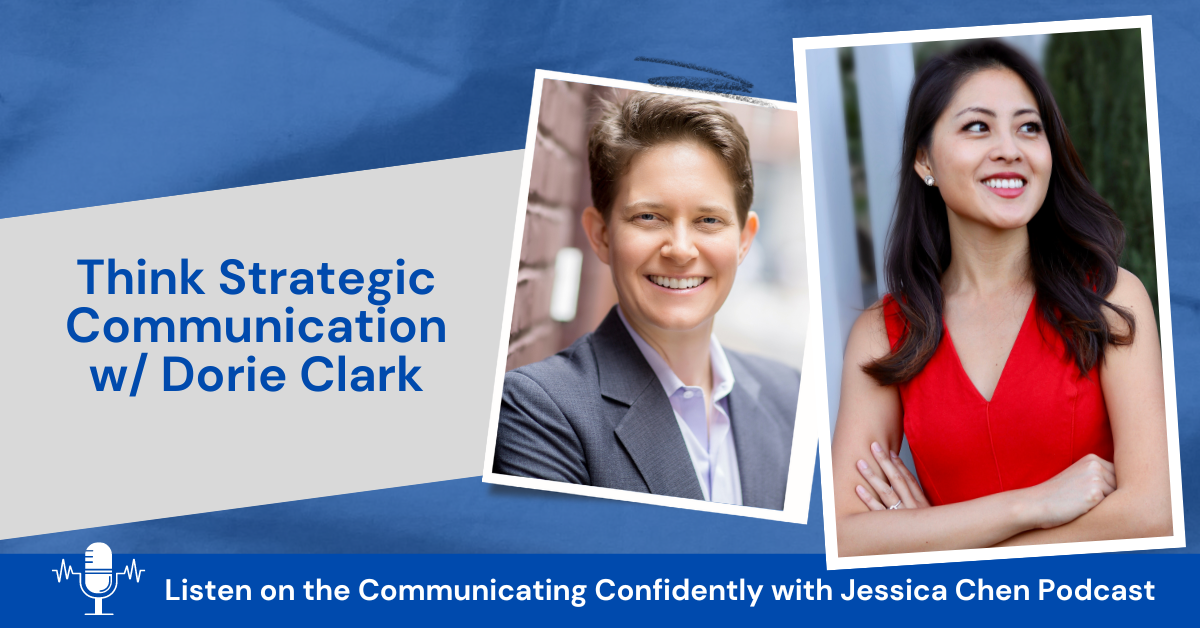Communicating To Get Your Ideas Heard
You know you have good ideas. However, getting your ideas heard, and by the right people can be challenging. Practicing specific communication skills can give you the confidence to speak up so your ideas can be heard.
 Our CEO and Founder, Jessica Chen, recently hosted a Soulcast Media | LIVE event on LinkedIn where she interviewed Head of Executive Education at Loyola Law School, Los Angeles, Hamilton Chan.
Our CEO and Founder, Jessica Chen, recently hosted a Soulcast Media | LIVE event on LinkedIn where she interviewed Head of Executive Education at Loyola Law School, Los Angeles, Hamilton Chan.
They shared tips and personal stories about communicating to get your ideas heard. This Soulcast Media | LIVE event is brought to you by our amazing sponsors at Sabobatage.
Sabobatage is a strategic tabletop game inspired by boba, also known as bubble tea or pearl milk tea. Have you or a friend ever said, ‘I wish I had a boba shop and could drink boba all day?’ Make those dreams come true with this card game that’s fun with your friends and perfect for the whole family.
Communication is so much more than what we say. It is our actions, how we interface with the world around us and the people within it. – Hamilton Chan
1. Self Awareness
During the Soulcast Media | LIVE, Hamilton said that the first thing people should focus on when getting their ideas heard is being self-aware. This is important because it will help you focus your thoughts and communications. When you are self-aware, you can own your voice, have a positive mindset, and know your trigger points.
- Own Your Voice – Many people are nervous about how they are going to be perceived, or are afraid to say something wrong. When you own your voice, you can authentically express yourself. One way to own your voice is to believe you have something valuable to contribute. For example, let’s say you are in a meeting about your company’s social media strategy. You know there will be a significant change coming in the algorithm on Instagram. The team needs to know this, so you should speak up and tell them. You may not always feel confident speaking up.
- Mindset – Your mindset is powerful. Being self-aware means, you are aware of the effect your mindset has. If you want the right people within your organization to hear your ideas, you have to shift your mindset. For example, if you think your ideas are great and you share them with enthusiasm, your ideas will be taken much more seriously. However, if you believe your ideas aren’t worth sharing and everyone will think they’re pointless, you probably won’t get your ideas heard. You have to shift your mindset into believing your ideas hold value.

- Trigger Points – Part of being self-aware is understanding your trigger points. Trigger points, like mental barriers, can prevent you from speaking up. Trigger points are usually what makes you anxious. For example, your trigger point could be when you get put on the spot. Being called on during a meeting without warning could make you feel anxious. This anxiousness can stop you from sharing your valuable input. When you know your trigger points, you can find strategies to diffuse them when they arise.
When you are self-aware, you will see yourself more clearly and communicate your ideas with confidence.
2. Building Relationships
Once you’ve given yourself the mental green light to speak up, the next thing you need to do is build those important relationships. If you want your ideas to be heard, you must build relationships. This is because the people you know can help advocate for you, sell your idea as a group, and build your credibility.
- Advocate – An advocate is someone who supports you. When you’re not in the room, they’re singing your praises, and that makes you look good. For example, let’s say you have a great idea about a marketing campaign for a new client. You’ve told a few trusted colleagues about the idea. However, you aren’t in the marketing meeting. Your colleague knows about your idea and tells the marketing manager about how you have this great idea. Your colleague is advocating on your behalf. You have to build those relationships to have people advocate for you.

- Power In Numbers – Building relationships expands your network. Your ideas are more likely to be heard when you have a trusted network. During the Soulcast Media | LIVE, Hamilton shared an example of how members of congress use their relationships to get bills passed. When a congressperson wants to get a bill passed, they usually have a sit-down meeting with another person to caucuses them individually. The more people who agree with the bill, the more likely it will get passed. This is because of the relationships built.
- Credibility – If you are credible, it means you are trustworthy. When you build strong relationships, more people within your organization will see you as being credible. And credibility can help you advance your career. For example, people are often hired based on who they know within a company, because the person they know is credible.
When you build strong relationships, you expand your professional network, which can help you get your ideas heard.
3. Confidence In Communication
You have to be confident in yourself, and clear-minded to communicate confidently. If you can’t express your ideas, they can never be heard.
You will need good tools and skills; taking classes, working on tone and body language, and positive self-talk can help you communicate confidently.
- Positive Self-Talk – Most people have some form of mental chatter happening daily. Positive self-talk is mental chatter. When you practice positive self-talk, you focus on affirming and supportive thoughts. This will help you gain confidence because through your thoughts, you change your mindset. For example, if you make a mistake, you can say, “I tried my best. However, I will learn from this mistake and never make it again.”
- Taking Courses – Taking courses can help build your confidence. This is because the more you learn, the more you grow as a communicator. For example, let’s say you are tasked with giving a public speech. If you take a course on public speaking, you will feel much more prepared, which will provide you with confidence as you deliver your speech. At Souclast Media, we offer many courses to help boost communications.
- Tone + Body Language – Your tone and body language can help you communicate more confidently. This is because non-verbal communication shows your audience whether you are confident or not. For example, if you are presenting during a meeting and you don’t make eye contact with your audience, they will think you are nervous or not telling them the whole truth. This is because good eye contact is associated with confidence and credibility.
When you are confident in your communications, you can convey your ideas clearly and authentically.
Communicating to get your ideas heard takes practice. Being self-aware, building relationships, and learning how to present your message confidently will help your ideas get heard by the right people within your organization.
If you want to see the full LIVE version of Jessica and Hamilton’s conversation, check out Jessica’s Youtube Channel.
__
Whenever you’re ready, there are 3 ways we can help you:
- Discover your communications style so you know where to start. Over 4,000 people have found theirs here.
- Attend our monthly communication workshop to build communications confidence (new topics: public speaking, advocating for yourself, building credibility, etc) here.
- Get your brand in front of 43k+ people by sponsoring our newsletter or Soulcast Media | LIVE LinkedIn events [contact: hello@soulcastmedia.com]











